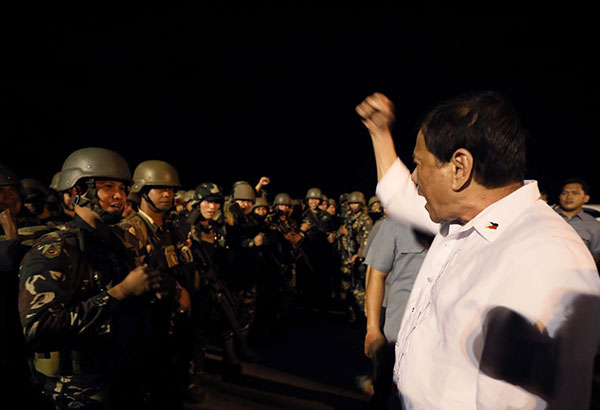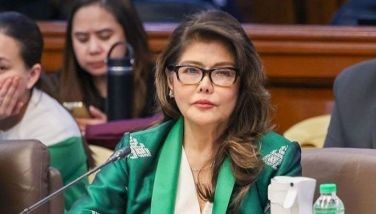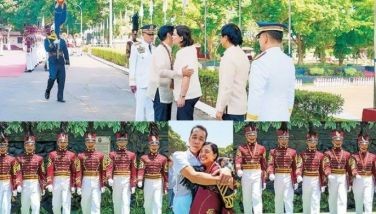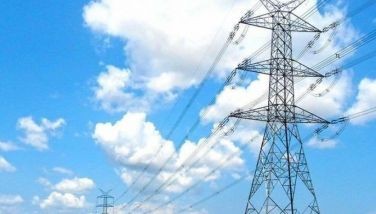SC asked to define 'public safety' requirement for martial law

President Rodrigo Duterte expresses his high praises to the troops of the 1st Infantry Battalion (1IB) who were preparing to leave at the Laguindingan Airport in Cagayan de Oro City on October 20, 2017. Ace Morandante/Presidential Photo
MANILA, Philippines — The Supreme Court should define the "public safety" required to declare martial law, petitioners said on Wednesday.
"It is Petitioners' firm assertion that it is the public safety requirement and not rebellion or invasion alone, which is the most decisive element in the martial law powers of the President," members of the National Union of Peoples' Lawyers said in their memorandum filed before the SC.
NUPL is one of the petitioners challenging the factual basis of President Rodrigo Duterte's year-long extension of martial law in Mindanao.
They said that the SC "must step out of the traditional understanding of public safety and must contextually define, nuance or at least describe the level of threat to public safety, which 'requires' the imposition of martial law and not merely 'necessitates' the calling out powers of the President."
Article VII, Section 18 of the 1987 Constitution states that: "In case of invasion or rebellion, when the public safety requires it, [the president] may, for a period not exceeding sixty days, suspend the privilege of the writ of habeas corpus or place the Philippines or any part thereof under martial law."
NUPL claimed that the government, respondents in the case, failed to answer what martial law powers are needed to protect the public.
In their petition, the human rights lawyers said that Duterte himself has belittled the threat of the dwindling forces of the Communist Party of the Philippines-New People's Army—among the grounds he cited for extending the martial law rule.
This, according to the petitioners, does not qualify as sufficient factual basis to impose martial law and suspend the privilege of the writ of habeas corpus.
READ: Petitioners: Duterte 'belittled' NPA threat, why extend martial law?
" The threat to public safety must have risen to a level that government cannot sufficiently or effectively govern, as exemplified by the closure of courts of government bodies, or at least the extreme difficulty of courts, the local government and other government services to perform their functions," they said
During the oral arguments on the case, the petitioners said that courts continued to function in Mindanao.
"Only in cases where the rebellion or invasion has made it extremely difficult, if not impossible for the government (or the courts) to function, to the extent that government or the local government in the area affected by the rebellion can no longer assure public safety and the delivery of government services, that the imposition of martial law is constitutionally permissible," the memorandum read.
The petitioners stressed that the SC can "strike down its exercise if the selected power is not supported by the constitutionally required factual basis."
"Martial law not only requires actual rebellion but that public safety requires its imposition," NUPL said.
"Imposing martial law to 'primarily ensure the total eradication of the rebels,' or for the rehabilitation of Marawi absent these requisites, falls short and violates, nay mocks, the letter and intent of the Constitution," they added.
- Latest
- Trending



























